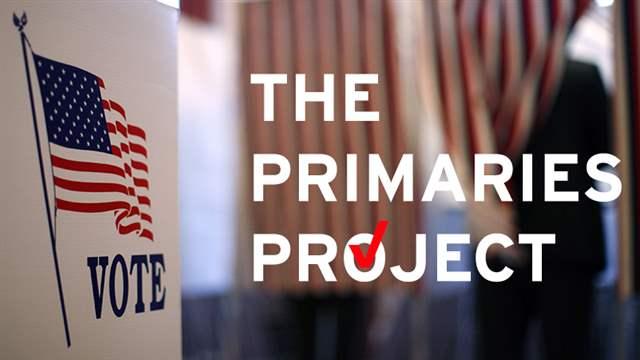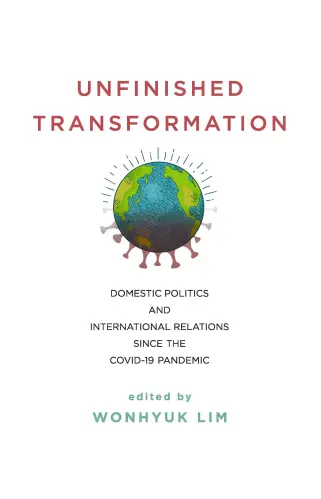Editor’s Note: This blog post is part of The Primaries Project series, where veteran political journalists Jill Lawrence and Walter Shapiro, along with scholars in Governance Studies, examine the congressional primaries and ask what they reveal about the future of each political party and the future of American politics.
Today, Mississippi voters head to the polls in a runoff for the Republican nomination for US Senate. Voters, in the race between incumbent Senator Thad Cochran and his Tea Party-backed challenger, state Sen. Chris McDaniel, face something very unique in party politics: a clear choice. The candidates are both Republican and both conservative, but their views on policy and politics are as different as their personalities.
Often in party primaries, candidates try to distinguish themselves on obscure issues or try to “out-extreme” their opponents. Republicans work hard to be more conservative; Democrats try to be more liberal. When you are similar ideologically, it is hard to offer voters a clear choice.
In Mississippi, the candidates are very different Republicans. Mr. Cochran employs a traditional Southern Senator’s approach to legislating. Seniority, committee assignment, and institutional clout have long served southern Senators well. They have been able to direct substantial sums of federal funding back to their states, providing substantive benefits on which they can hang their hats. Thad Cochran exemplifies that approach.
While the embrace of his position on the Appropriations Committee and his ability to bring home the bacon have been somewhat muted during the campaign against his Tea Party opponent, Thad Cochran has been clear in his purpose. His website notes, “Thad believes government’s role should be to create an environment where opportunity exists for everyone who wants to seize it.” He also laments, “A vast majority of our nation’s runaway spending is occurring outside the appropriations process and is called ‘mandatory’ or ‘entitlement’ spending”—a clear reference to his committee position.
Mr. Cochran’s power has ensured that Mississippi has reaped the benefits of federal programs that address agriculture, defense, Gulf coast issues, Mississippi Delta needs, urban and rural poverty, scientific research, and transportation, among other areas. Huge portions of the state economy depend, directly or indirectly, on federal assistance, and Thad Cochran offers no apologies for his role. Instead, like the traditional Southern Senator, it serves as fodder for him to claim credit.
Mr. McDaniel is a very different Republican. He views federal spending—regardless of the recipient—as a problem, not a solution. His view of the proper role for a Senator from Mississippi is to challenge the old system of pork barrel politics that has kept Senators in office while growing the federal budget. He epitomizes the Tea Party perspective on federal spending, and like Mr. Cochran, he offers no apologies for those views.
Mr. McDaniel, clearly throwing barbs at his opponent’s penchant for pork, notes on his website that, “Chris also opposes the earmarking system that forces taxpayers to foot the bill for such outrageous projects as the Bridge to Nowhere in Alaska and the Lobster Institute in Maine. Earmarking has contributed to Washington’s debt crisis by allowing members to buy each other’s votes for massive spending bills in exchange for favored projects.”
Beyond pork and earmarks, Mr. McDaniel claims he will bring a different tone. His campaign style shows he is bombastic and passionate, whereas Mr. Cochran is genteel and reserved. On his Facebook page, Mr. McDaniel is even clearer about this change in style and tone. He writes, “Compromise and surrender are among the fine arts practiced by most politicians. I have no intention to be a mere politician. We must learn to fight again.”
Mr. McDaniel presents himself as someone unwilling to continue the Cochran-style of legislating; his goal is to divorce the state not just from the incumbent, but from his approach, as well.
And so tonight, Mississippi Republicans will give one of these men the nomination for Senate. Either choice has benefits and consequences. Either choice has consequences for policy, politics, polarization, and pork. Mississippi Republicans and conservative voters across the state won’t have to pick at random from candidates who are clones. They will not hold their nose and pick from the lesser of two evils who fail to represent their views. Instead, Mississippi Republicans are at a crossroads. They can opt the comfortable, traditional path that has served them well for decades. Or they can select a new, fiery, ideological path, as other states have recently embraced. Regardless, they have a clear choice—and that’s a perk that not every state gets to enjoy.
The Brookings Institution is committed to quality, independence, and impact.
We are supported by a diverse array of funders. In line with our values and policies, each Brookings publication represents the sole views of its author(s).












Commentary
The Primaries Project: Mississippi Republicans Have a Clear Choice in Today’s Senate Runoff
June 24, 2014